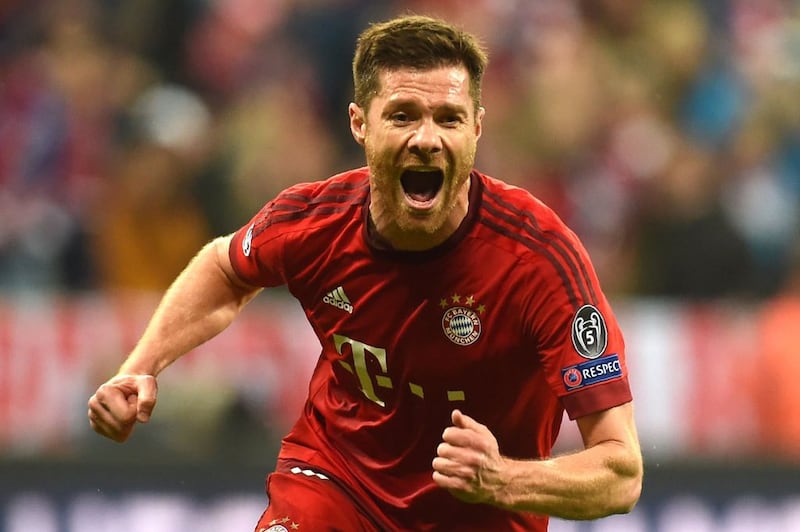The message was as crisp and clinical as his football. He rarely wasted a pass. He did not waste a word, either. "Lived it. Loved It. Farewell beautiful game," Xabi Alonso wrote on Twitter. It was accompanied by a monochrome picture. It was another fitting choice. Alonso appeared timeless, an antidote to the generation of fake tan, dyed hair and tattoos.
Yet he also defined his era. He played for four of the great managers of the 21st century, in Rafa Benitez, Jose Mourinho, Carlo Ancelotti and Pep Guardiola, and in the finest international side of their generation, perhaps ever. He is synonymous with unpredictability, scorer of the goal that completed Liverpool’s immortal comeback against AC Milan in Istanbul, as well as a sense of certainty: when he in possession, the ball would be stroked around intelligently.
He was the Real Madrid player who proved a soulmate of Barcelona’s pass-masters as Spain played tiki-taka on their way to one World Cup and two European Championships. He could play a short-passing game as well as any graduate of La Masia. But he was also pinpoint from distance, whether in picking out a teammate or finding the net from his own half.
__________________________________
Read more
■ From Barcelona: Fans spur team to greatest of comebacks
■ Predictions: Chelsea set for shock defeat to Manchester United
■ Europa League: Genk and Gent vie for neighbourhood superiority
__________________________________
Few players should be judged purely by their goal returns. Alonso, whose most prolific season produced just five, certainly should not. Yet he illustrated the substance that accompanied his considerable style with the decisive double he scored on his 100th cap and in the Euro 2012 quarter-final against France.
It was uncharacteristic in one respect. He is essentially a team player, one who controls the game with languid, practised excellence so flashier figures can perform headline-grabbing exploits. It was why he united managerial opposites. They all appreciated him.
The modern game’s greatest ideologues grew up in or gravitated to Spain and Alonso brought a cerebral element to a physical sport. If you loved football, and loved thinking about football, you loved Alonso. Tellingly, though, he appealed to the instinctive.
“By some distance the best central midfielder I ever played alongside,” Steven Gerrard in his 2015 autobiography. They were the streetfighter and the professor. They formed a mutual admiration society. Liverpool’s tribute to Alonso consisted of one word — “legend” — and they have had ample reasons to rue his 2009 sale.
But it formed part of a CV few can rival: Real Socieded, the club his father played for, Liverpool, Real Madrid, Bayern Munich and Spain. At 35, Alonso has the technical talent to extend his career for years. But he always read the game beautifully. Bayern’s future lies with Renato Sanches and Joshua Kimmich, not the retiring Philipp Lahm and Alonso. Should he win the Champions League for a third time with a third club, it would mark a fitting farewell to a man who made football more beautiful.
Follow us on Twitter @NatSportUAE
Like us on Facebook at facebook.com/TheNationalSport






